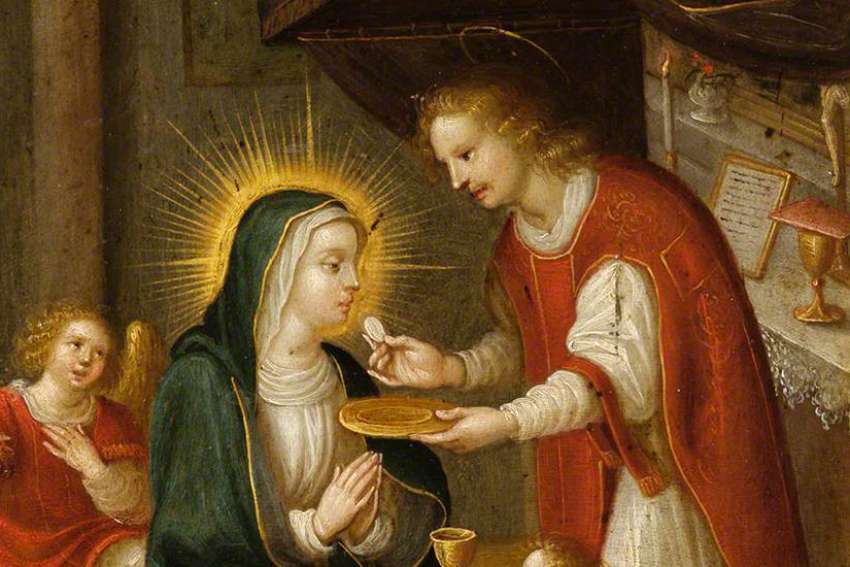Love is the foundation of the Christian faith and way of life, but what does that mean? Many have a rather sentimental view of love, but sentimentality plays no part in it.
As we learn in numerous New Testament verses, love is practical, concrete and demanding. The universal judgment in Matthew 25 is a fine example: Responding in a practical way to the pain, distress and needs of others, the righteous manifested divine love. Hunger, shame, loneliness, poverty and ill health are all opportunities to bring love to full expression in the form of comfort, encouragement and material assistance.
It is clear, then, that the source of strength, unity, joy and spiritual energy in the earliest Christian communities was the vibrant love that members had for one another. Acts informs us that the first community shared everything in common. Not one of their members was needy or lacking in essentials. Possessiveness was banished and no one lapsed into a “mine and thine” mentality.
Their “one heart and soul” was not mindless group-think — it merely meant that they were on the same page when it came to the essentials of faith. One of the most important aspects of this understanding was their belief and experience that they were all bound together, heart and soul, and united with and in Christ. They lived for others because they did not feel a distance or separation from one another.
This is an awareness that we would do well to recover. Our world is fragmented and polarized, and humanity is increasingly controlled by fear, tribalism and loss of meaning. The separation from others that many experience is of our own making, and our sense of distance and isolation from God is an illusion.
The only barriers and walls that exist are those we have constructed in our minds and hearts. Fortunately, what we have built we can also unbuild, but we must be willing and eager to do so. Selfish, fearful and combative words, thoughts and actions will only deepen the problem.
Christians have a great opportunity to witness to the world through humane and spirit-filled communities, but we cannot give what we do not have. The passages from Acts are not merely for Easter season reading, they are also a guide and pattern for our lives.
When we love God and obey His commandments, we will know we are truly children of God. These are summed up in the commandment of Jesus to love one another. Again, this is not sentiment — John sets the bar very high.
Love that is of divine quality is a willingness to lay down one’s life for others. This need not be a literal loss of life — living for the sake of others is a helpful refinement and clarification of that command. It is expressed well in the description of the early communities of believers. When we can walk the path of love and live without selfishness, possessiveness, competitiveness and isolation, then we have indeed “conquered the world.”
In John’s Gospel, Jesus had promised His followers the gift of peace. He made it clear that He was not speaking of the familiar peace of the world. It would not be a brief cessation of hostilities to prepare for the next round, but an everlasting peace that only God can give. This peace was given in the upper room with the greeting of “shalom” — peace or wholeness.
This peace consisted of loving and knowing God and being known and loved by God in return. The sense of distance and separation receded with the gifting of the Spirit when Jesus created them anew with the divine breath. Being Spirit-filled people, their mission was to reveal the true God to a searching and hurting world. This is the same mission charged to all who consider themselves disciples.
It is never just about our own salvation, but the redemption and transformation of the world. It would be a mistake to be devoured by doubts and demands for proof, as in the case of Thomas.
Faith is a response of the open and eager heart and is always joined with a desire to share the life of the Lord in both struggle and glory.
The Virgin Mary receiving the Eucharist from St. John the Apostle.
National Trust for Scotland, Fyvie Castle
God's word on Sunday: Loving one another builds path to God
By Fr. Scott Lewis, S.JSecond Sunday of Easter, April 8 (Year B) Acts 4:32-35; Psalm 118; 1 John 5:1-6; John 20:19-31
Tagged under:


